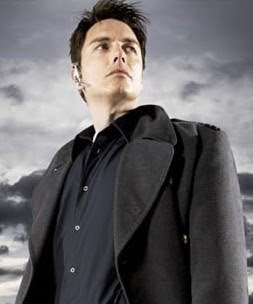Before we begin, I would like to agree on some basic assumptions:
1) If there is a contradiction between Classic Who canon and
New Who, Classic Who is the trusted source. Over 40 years of back story should outweigh 4 years of RTD.
2) If New Who introduces a concept that was never covered in
Classic Who, then it is canon.
Now my first contention is that not all Gallifreyans are Time Lords. There is ample evidence for this premise in
Classic Who. However, that is a discussion for another post. I would argue, based on Classic Who, that only Time Lords are able to regenerate, not all Gallifreyans. The ability is granted to Gallifreyans who join the exclusive fraternity of Time Lords.
Position Statement: Regeneration is a scientific accomplishment of The Time Lords and not a genetic trait they are born with.
Which episode supports this theory? The episode I would quote is
'The Five Doctors'.
In
'The Five Doctors' The Master is summoned to Gallifrey. The Master has used all of his 12 regenerations (
yes, Time Lords can only regenerate 12 times) and is nearing the end of his life. The Time Lords request The Master assist The Doctor against a major threat. In return the Time Lords promise The Master a fresh cycle of regenerations.
It would seem obvious that if The Time Lords can grant The Master a fresh cycle of regenerations, then the ability is likely based on science and not genetics.
What if the Time Lords just have the ability to obtain an unlimted number of cycles?
You might ask if this doesn't just imply that the batch of regenerations are easily obtainable on Gallifrey. I believe the same episode proves that is not the case.
The premise of
'The Five Doctors' is that President Borusa is attempting to obtain immortality. Obviously, if a Time Lord can just take extra cycles of regenerations at will they would approach near immortality. If anyone could obtain them it would be the President of the Time Lords.
So we can probably conclude that the cycles are difficult to obtain. Perhaps obtaining the new cycle took approval of the entire senate of Time Lords. Or perhaps there is a limit to how many cycles a Time Lord can take before they cease to function.
Conclusion:
* Regenerations are granted to Time Lords through science.
* The cycle of regenerations are difficult enough to obtain that they are beyond the casual reach of even the President of Gallifrey.
* There must be a limit to the number of cycles a Time Lord can consume or Borusa would not have needed to go through so much trouble to obtain immortality.
Fanon: Regeneration Trivia
Before
New Who was back on television it was generally agreed upon by fans that Gallifreyans are not born with two hearts. It was argued that they were born with a single heart and upon their first regeneration they obtain the second heart.
The thought was that regenerations might be triggered by nanites which then adjust the Time Lords physiology to an optimal configuration (not one which they were born with). Again, this was fan speculation but it was pretty mainstream for decades.
I must admit I'm fond of this theory although there is nothing concrete to support it (other than the fact it was never mentioned that the first Doctor had two hearts).


